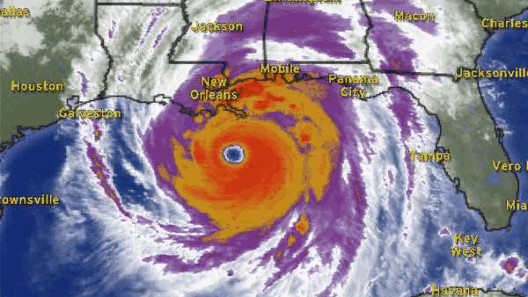The concept of climate change often evokes an imagistic metaphor—the slow thawing of an ice giant, whose caliginous depths we’ve only begun to fathom. As we peer into this glacial abyss, the question arises: Can climate change be reversed? This inquiry stretches beyond mere speculation and demands a thorough exploration of scientific inquiries, global initiatives, and the intricate web of human activity entangled within the fabric of Earth’s ecosystems.
To understand if climate change can be reversed, one must first grasp the magnitude of the challenge ahead. Climate change is akin to a colossal ship navigating treacherous waters—it doesn’t simply turn on a dime. The interwoven strands of greenhouse gas emissions, carbon footprints, and deforestation have coalesced into a perfect storm, propelling global temperatures to unprecedented heights. Thus, the first order of business is to dissect the emergence of this phenomenon: the accumulation of carbon dioxide (CO2) and methane (CH4) in the atmosphere, fueled by human endeavors, primarily industrialization, deforestation, and expanding agricultural practices.
Experts assert that reversal, in a literal sense, might not be the most accurate framing. Instead, a more fundamental question looms—can we mitigate and adapt to the outcomes of climate change while actively striving to restore the balance? The truth is that while some elements of climate change are indelible, there remains a conjuncture of opportunities to effectuate a substantial transformation.
The first step in this colossal endeavor is recognizing the potential for green technology innovations. Renewable energy sources such as solar, wind, and hydropower hold the promise of not merely reducing emissions but actively lowering atmospheric concentrations of CO2. For example, solar panels, akin to modern-day sunflowers, harness sunlight and convert it into electricity, thereby displacing fossil fuels. Furthermore, carbon capture technology endeavors to emulate nature’s mechanisms for sequestering carbon—effectively siphoning CO2 from industrial outputs and burying it deep within Earth’s crust, mitigating its pernicious effects.
However, the pursuit of technological solutions cannot be undertaken in isolation. It necessitates a concerted effort encompassing policy reform, economic incentives, and grassroots activism. Just as the roots of a tree intertwine and spread beneath the surface, policy frameworks must intertwine with scientific advancements. Implementing stricter regulations on emissions and offering incentives for sustainable practices can catalyze transformative environmental shifts. This symbiosis between science and policy aims to restore the planet’s health and foster resilience against climate fluctuations.
Moreover, the power of reforestation and afforestation initiatives serves as a beacon of hope in the climate reversal discussion. Forests act as the Earth’s lungs, absorbing CO2 and releasing oxygen, all while providing crucial habitats for diverse species. Reinvigorating deforested landscapes and planting new forests not only serves to sequester carbon but also bolsters biodiversity and enhances ecosystem resilience. The intricate tapestry of life that thrives within these forests is irreplaceable; preserving it is tantamount to safeguarding our own future.
Nevertheless, while these efforts are laudable, they must be approached with unwavering urgency. The paradox lies in the fact that even with the most noble intentions, effects may be marginal if immediate actions aren’t executed rapidly enough. Climate inertia, the term for the delayed response of the climate system to changes in greenhouse gas concentrations, means that actions taken today will shape the future climate landscape. It is this lagging response that underscores the necessity for not just reactive measures, but proactivity.
Global cooperation presents both a challenge and an opportunity in this environmental quandary. In the age of globalization, the interdependence of nations is undeniable. However, disparate political priorities and economic structures can stymie collective action. For climate change to be effectively addressed, international collaboration is paramount. Agreements such as the Paris Accord exemplify efforts to unify global initiatives to limit temperature rises. These accords must transcend mere platitudes; they require actionable frameworks that nations can adapt to their respective contexts while holding each other accountable.
Equally critical is the role of individuals in this colossal effort. Climate change’s multifaceted nature trickles down to the choices made in everyday life. The metaphor of a drop in the ocean resonates profoundly here; while one person’s actions may seem infinitesimal, cascading effects can emerge when collective action is harnessed. Adopting sustainable practices, advocating for systemic change, and fostering awareness are not merely advisable but imperative in propelling societal shifts that will ripple through future generations.
Finally, the psychological and philosophical implications of our relationship with nature must be explored. The tragedy of climate change stems not just from environmental degradation, but from a disconnection between humanity and the Earth. Embracing an ecological consciousness fosters respect for the delicate balance of life, urging a departure from exploitative habits toward stewardship and sustainability. The metaphor of nurturing our home—an ethos of care—can catalyze profound changes in behavior and policy alike.
As the echoes of scientific consensus and empirical data resonate through our communities, the answer to the question of reversing climate change is not a straightforward affirmation or negation. Instead, it lies in the understanding that while certain effects may be long-lasting, there exists a plethora of methods by which society can alter its trajectory. A combination of technological innovation, policy reform, international cooperation, and individual responsibility creates a potent elixir for restoration. Thus, the possibility of tempering climate change may not lie in the fantasy of reversal but in our capacity to adapt, mitigate, and fundamentally reimagine our relationship with the planet we call home.








